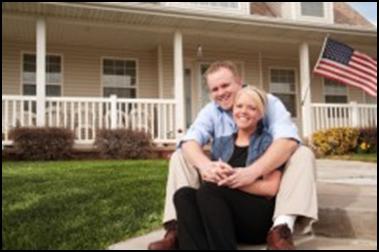













We look forward to assisting you and providing more
Information or answering any questions you may have. Please feel free to contact us at
Copyright © 2002-2016 American Organization of Companies LLC, All Rights Reserved
Homeowners Options
Affordability Options for First-Time Buyers
First-time home buyers who want affordable homes may want to take a hard look at fixer-uppers, smaller homes and cheaper commutes to work to save on the costs of buying and owning a home.
Real estate brokers say many home buyers expect more than they can afford in a home and once they start pounding the pavement for housing their disconnect could be discouraging. In an online survey of 150 brokers, discovered some disturbing trends among first-time home buyers.
While nearly half of the brokers surveyed said affordability was the No. 1 concern for first time buyers, 81 percent of those buyers also consider move-in conditions to be very important when searching for homes. Only 7 percent are considering fixer-upper homes. The real estate company suggests more buyers should examine the fixer-upper option -- among others -- to get the affordability they seek.
"It is important for first-time homebuyers to remember that by considering a fixer-upper for their first home purchase, they can build equity over time and later move up and into their second-stage home that better reflects their expectations"
The fixer-upper option
Buyers looking for affordability who go with the fixer-upper option should get the home professionally inspected to determine what fixing up is necessary, and certainly not bite off more than they can chew.
Even homes that need a basic face lift -- paint, carpeting, landscaping, window treatments and other cosmetic touches -- can come with big savings.
Homes that may require professional upgrades cost even less, but the buyer has to weigh the discounted price against the cost of the improvement.
Best of both worlds
However, buyers can enjoy the best of both worlds if they purchase a cheaper home away from job centers, but in a transit oriented development (TOD) or other distant community that offers low-cost public transit to work. Carpooling, trip sharing and car sharing communities boost the idea of affordable housing.
The broker study also said 46 percent of the survey respondents reported that first-time home buyers look at five to 10 homes, on average, before making a purchase.
While nearly half of the brokers surveyed said affordability was the No. 1 concern for first time buyers, 81 percent of those buyers also consider move-in conditions to be very important when searching for homes. Only 7 percent are considering fixer-upper homes.
The message is simple
The message is simple here. Spend more time looking at more homes for sale. Instead of five to 10, make it 10 to 20. Take the time to find affordability. Discounts were more likely available from homes that had been on the market for 90 days or more; homes for sale that were owned by long-time owners; homes for sale from flipping investors down on their luck; and properties owned by we-want-to-sell-real-estate banks who now know what it means to be careful what you wish for.
The real estate company suggests more buyers should examine the fixer-upper option -- among others -- to get the affordability they seek.
"In the past, first-time home buyers were willing to purchase older, more basic houses in an effort to save money
and break into homeownership"
Looking for affordability
The brokers study also found some disconnect between affordability desires and what buyers want in home size and its location.
The vast majority of first-time buyers, 71 percent, were looking for larger homes than they were 10 years ago, brokers reported, but bigger isn't better when it comes to price. A smaller single-family home or a condo or townhome can be cheaper by virtue of the smaller footprint and square footage. The smaller cost on a smaller home also could come with affordability.
Forty-one percent of brokers also said, for their buyers, proximity to their workplace was numero uno when it came to considerations made when looking for a home. Higher gasoline prices have made the job center location factor even more crucial, however, in most metros, a home's proximity to employment centers comes with an added cost. Homes nearer job centers cost more because of the added value of reduced transportation costs and time (which is money) spent commuting.
Sponsored By
"Try Fixer-Uppers And Smaller Homes"
By Broderick Perkins
RESIDENTIAL
RESIDENTIAL - Tools & Tips

